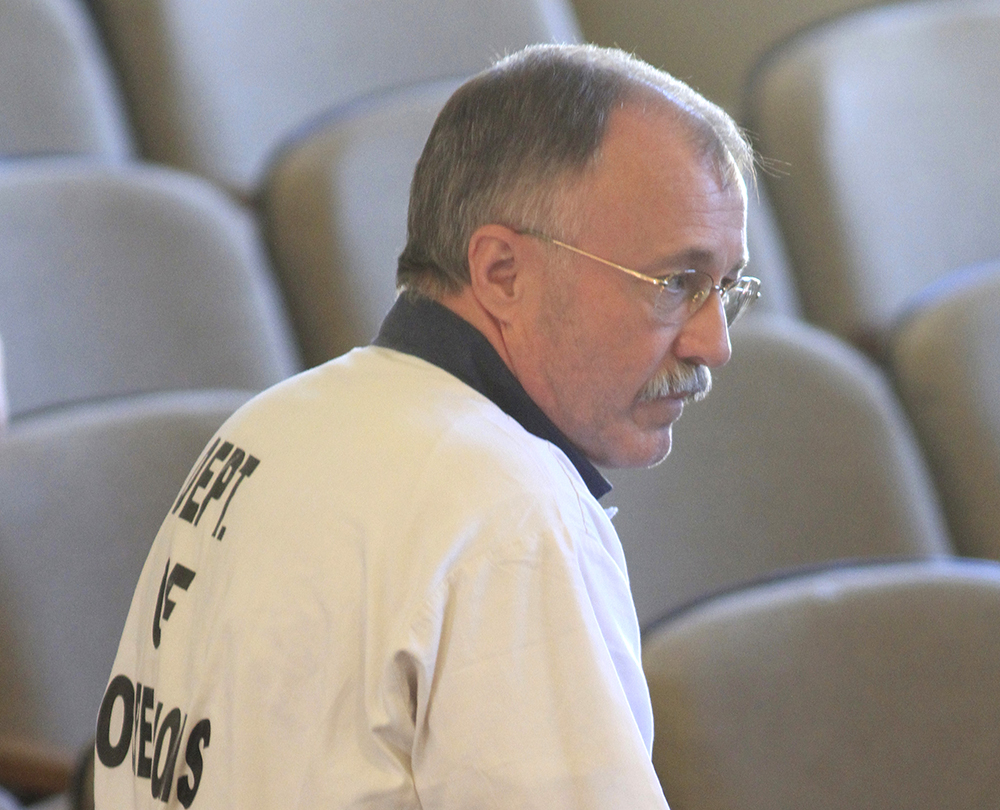A former LaFayette, Ga., police sergeant will remain in prison for the murder of his wife.
Samuel Logan Parker, whom a jury convicted for killing Theresa Parker, his wife of 16 years, appealed to the Georgia Supreme Court this year. Public Defender David Dunn told the justices in June that Parker should get a new trial because Judge Jon "Bo" Wood made mistakes during the original trial.
Theresa Parker died in March 2008. But when Sam Parker went to trial 18 months later, investigators still had not found her body. They would find it in 2010, a year after the jury convicted Parker.
During the trial, Rome Judicial Circuit District Attorney Leigh Patterson used a couple of pieces of evidence that Sam Parker's lawyer said should not have been allowed.
One, Patterson brought up the former sergeant's violent past with women. And two, she brought up what deputies saw at the Parkers' home the day Theresa went missing, something they discovered while looking without a warrant.
Dunn told the justices during an appeal in June that Wood should not have let Patterson use that evidence. In an opinion released Monday morning, all seven justices disagreed with Dunn, upholding Parker's murder conviction.
Concerning Parker's violent past, the justices said that evidence was admissible in court because a reasonable person could use the information to form an opinion about whether Parker killed his wife.
During the 2009 trial, one of Parker's former wives testified that he abused her multiple times. Once, he shattered glass on the ground, grabbed her by the hair, dragged her through the glass and handcuffed her to the bed.
She testified that Parker told her he could kill her and hide her body so that nobody could find it. Theresa Parker's mother and former sister-in-law also testified that Sam Parker gave them the same message.
Chief Justice Hugh Thompson wrote in the Supreme Court's opinion that Wood was allowed to let that 2009 jury hear those testimonies.
"The incidents were sufficiently similar," Thompson wrote of the various abuse allegations. "The trial court's factual findings were not clearly erroneous."
Parker's attorney also objected to Wood's decision in 2009 to let Patterson tell the jury about the mystery of Theresa Parker's Toyota 4Runner. On the day Theresa Parker disappeared, a concerned friend asked a Walker County sheriff's deputy to check on her.
He and another deputy went to the Parkers' home, but nobody was there. In the garage, they found Sam Parker's patrol car, but not his wife's 4Runner.
Three days later, after Theresa Parker's mother's boyfriend called 911 to report that still nobody had heard from Theresa, investigators went to the Parkers' house. They found the 4Runner in the garage with blood stains on it -- blood that matched both Theresa and Sam Parker.
In June, Dunn told the justices that the Walker County deputies violated Sam Parker's constitutional rights when they peeked into his garage without a warrant.
"The Supreme Court has stated quite clearly that a trespass is forbidden," Dunn argued at the time. "We had a trespass here, and it was fatal to my client."
Patterson, meanwhile, argued that the deputies were allowed to look in the garage because they weren't actually searching the home as a crime scene: They were performing a welfare check.
"They went to see if Theresa was OK," she told the justices.
Contact staff writer Tyler Jett at tjett@timesfreepress.com or 423-757-6476.
Previous news report:

